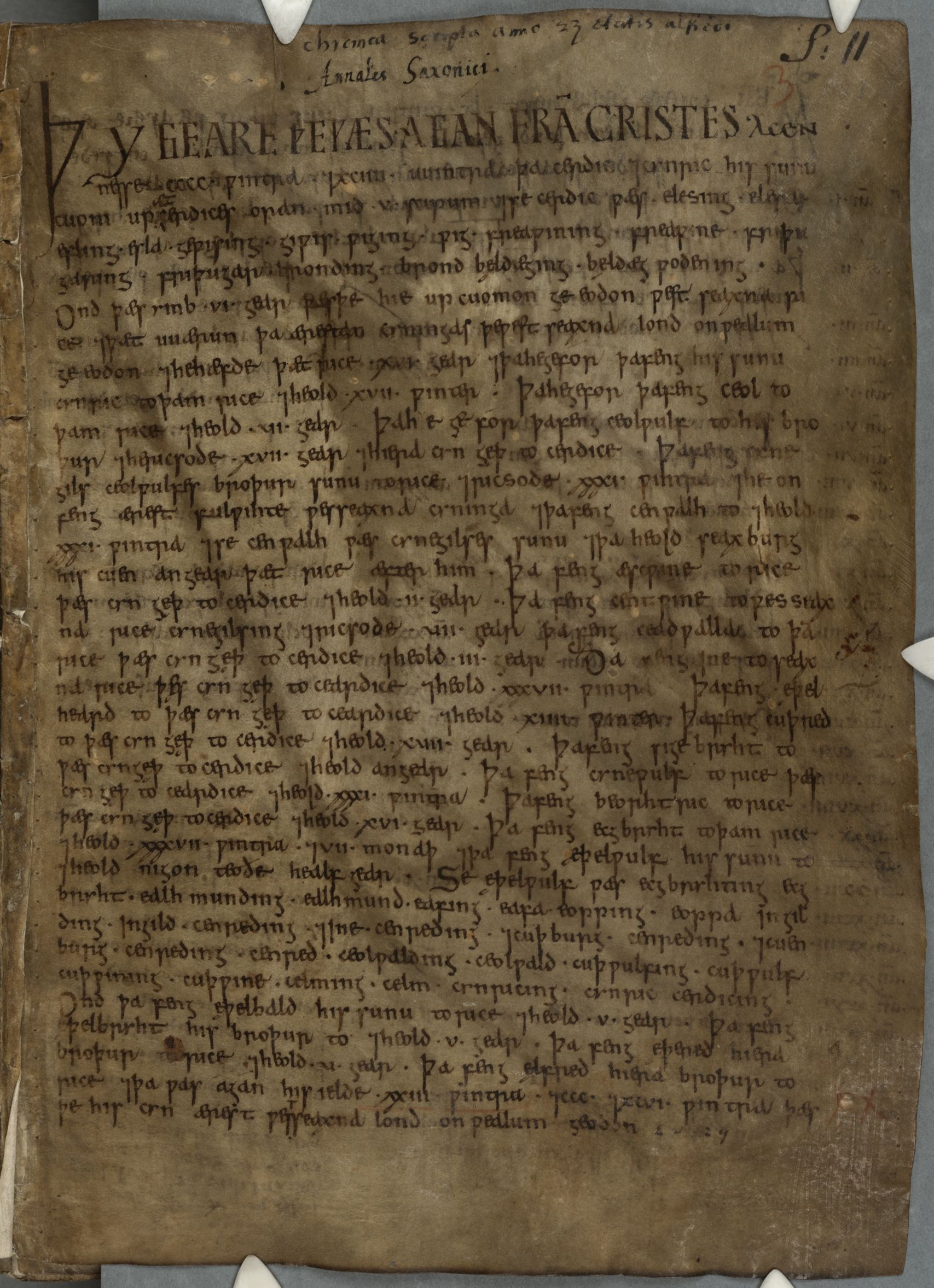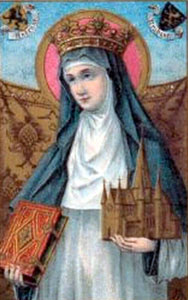|
Eorcenwald
__NOTOC__ Earconwald or Erkenwald (died 693) was Bishop of London between 675 and 693. Life Earconwald was born at Lindsey in Lincolnshire,Walsh ''A New Dictionary of Saints'' p. 182 and was supposedly of royal ancestry. In 666, he established two Benedictine abbeys, Chertsey Abbey in SurreyKirby ''Earliest English Kings'' p. 83 for men, and Barking Abbey for women.Yorke "Adaptation of the Anglo-Saxon Royal Courts" ''Cross Goes North'' pp. 250–251 His sister, Æthelburg, was Abbess of Barking, while he served as Abbot of Chertsey. In 675, Earconwald became the Bishop of London, after Wine.Fryde, et al. ''Handbook of British Chronology'' p. 219 He was the choice of Archbishop Theodore of Canterbury.Kirby ''Earliest English Kings'' pp. 95–96 While bishop, he contributed to King Ine of Wessex's law code, and is mentioned specifically in the code as a contributor.Yorke ''Conversion of Britain'' p. 235 Current historical scholarship credits Earconwald with a large role in the ev ... [...More Info...] [...Related Items...] OR: [Wikipedia] [Google] [Baidu] |
Ine Of Wessex
Ine, also rendered Ini or Ina, ( la, Inus; c. AD 670 – after 726) was King of Wessex from 689 to 726. At Ine's accession, his kingdom dominated much of southern England. However, he was unable to retain the territorial gains of his predecessor, Cædwalla, who had expanded West Saxon territory substantially. By the end of Ine's reign, the kingdoms of Kent, Sussex, and Essex were no longer under West Saxon sway; however, Ine maintained control of what is now Hampshire, and consolidated and extended Wessex's territory in the western peninsula. Ine is noted for his code of laws (''Ines asetnessa'' or "laws of Ine"), which he issued in about 694. These laws were the first issued by an Anglo-Saxon king outside Kent. They shed much light on the history of Anglo-Saxon society, and reveal Ine's Christian convictions. Trade increased significantly during Ine's reign, with the town of Hamwic (now Southampton) becoming prominent. It was probably during Ine's reign that the West Saxon ... [...More Info...] [...Related Items...] OR: [Wikipedia] [Google] [Baidu] |
Bishop Of London
A bishop is an ordained clergy member who is entrusted with a position of authority and oversight in a religious institution. In Christianity, bishops are normally responsible for the governance of dioceses. The role or office of bishop is called episcopacy. Organizationally, several Christian denominations utilize ecclesiastical structures that call for the position of bishops, while other denominations have dispensed with this office, seeing it as a symbol of power. Bishops have also exercised political authority. Traditionally, bishops claim apostolic succession, a direct historical lineage dating back to the original Twelve Apostles or Saint Paul. The bishops are by doctrine understood as those who possess the full priesthood given by Jesus Christ, and therefore may ordain other clergy, including other bishops. A person ordained as a deacon, priest (i.e. presbyter), and then bishop is understood to hold the fullness of the ministerial priesthood, given responsibility b ... [...More Info...] [...Related Items...] OR: [Wikipedia] [Google] [Baidu] |
7th-century Latin Writers
The 7th century is the period from 601 (DCI) through 700 ( DCC) in accordance with the Julian calendar in the Common Era. The spread of Islam and the Muslim conquests began with the unification of Arabia by Muhammad starting in 622. After Muhammad's death in 632, Islam expanded beyond the Arabian Peninsula under the Rashidun Caliphate (632–661) and the Umayyad Caliphate (661–750). The Muslim conquest of Persia in the 7th century led to the downfall of the Sasanian Empire. Also conquered during the 7th century were Syria, Palestine, Armenia, Egypt, and North Africa. The Byzantine Empire suffered setbacks during the rapid expansion of the Caliphate, a mass incursion of Slavs in the Balkans which reduced its territorial limits. The decisive victory at the Siege of Constantinople in the 670s led the empire to retain Asia Minor which assured the existence of the empire. In the Iberian Peninsula, the 7th century was known as the ''Siglo de Concilios'' (century of councils) refe ... [...More Info...] [...Related Items...] OR: [Wikipedia] [Google] [Baidu] |
7th-century Christian Saints
The 7th century is the period from 601 (DCI) through 700 ( DCC) in accordance with the Julian calendar in the Common Era. The spread of Islam and the Muslim conquests began with the unification of Arabia by Muhammad starting in 622. After Muhammad's death in 632, Islam expanded beyond the Arabian Peninsula under the Rashidun Caliphate (632–661) and the Umayyad Caliphate (661–750). The Muslim conquest of Persia in the 7th century led to the downfall of the Sasanian Empire. Also conquered during the 7th century were Syria, Palestine, Armenia, Egypt, and North Africa. The Byzantine Empire suffered setbacks during the rapid expansion of the Caliphate, a mass incursion of Slavs in the Balkans which reduced its territorial limits. The decisive victory at the Siege of Constantinople in the 670s led the empire to retain Asia Minor which assured the existence of the empire. In the Iberian Peninsula, the 7th century was known as the ''Siglo de Concilios'' (century of council ... [...More Info...] [...Related Items...] OR: [Wikipedia] [Google] [Baidu] |
7th-century English Bishops
The 7th century is the period from 601 (DCI) through 700 ( DCC) in accordance with the Julian calendar in the Common Era. The spread of Islam and the Muslim conquests began with the unification of Arabia by Muhammad starting in 622. After Muhammad's death in 632, Islam expanded beyond the Arabian Peninsula under the Rashidun Caliphate (632–661) and the Umayyad Caliphate (661–750). The Muslim conquest of Persia in the 7th century led to the downfall of the Sasanian Empire. Also conquered during the 7th century were Syria, Palestine, Armenia, Egypt, and North Africa. The Byzantine Empire suffered setbacks during the rapid expansion of the Caliphate, a mass incursion of Slavs in the Balkans which reduced its territorial limits. The decisive victory at the Siege of Constantinople in the 670s led the empire to retain Asia Minor which assured the existence of the empire. In the Iberian Peninsula, the 7th century was known as the ''Siglo de Concilios'' (century of counc ... [...More Info...] [...Related Items...] OR: [Wikipedia] [Google] [Baidu] |
Bishops Of London
A bishop is an ordained clergy member who is entrusted with a position of authority and oversight in a religious institution. In Christianity, bishops are normally responsible for the governance of dioceses. The role or office of bishop is called episcopacy. Organizationally, several Christian denominations utilize ecclesiastical structures that call for the position of bishops, while other denominations have dispensed with this office, seeing it as a symbol of power. Bishops have also exercised political authority. Traditionally, bishops claim apostolic succession, a direct historical lineage dating back to the original Twelve Apostles or Saint Paul. The bishops are by doctrine understood as those who possess the full priesthood given by Jesus Christ, and therefore may ordain other clergy, including other bishops. A person ordained as a deacon, priest (i.e. presbyter), and then bishop is understood to hold the fullness of the ministerial priesthood, given responsibility by ... [...More Info...] [...Related Items...] OR: [Wikipedia] [Google] [Baidu] |
Anglo-Saxon Benedictines
The Anglo-Saxons were a cultural group who inhabited England in the Early Middle Ages. They traced their origins to settlers who came to Britain from mainland Europe in the 5th century. However, the ethnogenesis of the Anglo-Saxons happened within Britain, and the identity was not merely imported. Anglo-Saxon identity arose from interaction between incoming groups from several Germanic tribes, both amongst themselves, and with indigenous Britons. Many of the natives, over time, adopted Anglo-Saxon culture and language and were assimilated. The Anglo-Saxons established the concept, and the Kingdom, of England, and though the modern English language owes somewhat less than 26% of its words to their language, this includes the vast majority of words used in everyday speech. Historically, the Anglo-Saxon period denotes the period in Britain between about 450 and 1066, after their initial settlement and up until the Norman Conquest. Higham, Nicholas J., and Martin J. Ryan. ''The ... [...More Info...] [...Related Items...] OR: [Wikipedia] [Google] [Baidu] |
Mercian Saints
Mercia was an Anglo-Saxon kingdom covering the region now known as the English Midlands. It is sometimes used as a poetic name for the Midlands. Mercia or Mercian may also refer to: * Mercia Inshore Search and Rescue, an volunteer water-rescue organisation * Mercia MacDermott (born 1927), writer and historian * Mercian Brigade, an historic unit in the British Army * Mercian Cycles, a bicycle manufacturer * Mercian dialect, a dialect of Old English spoken in Anglo-Saxon Mercia * Mercian Regiment, a present-day unit of the British Army * Mercian Corporation, a producer and distributor of retail wine products * Free Radio Coventry & Warwickshire, previously called Mercia See also * List of monarchs of Mercia * Royal Mercian and Lancastrian Yeomanry * West Mercia Police West Mercia Police (), formerly the West Mercia Constabulary, is the territorial police force responsible for policing the counties of Herefordshire, Shropshire (including Telford and Wrekin) and Worcester ... [...More Info...] [...Related Items...] OR: [Wikipedia] [Google] [Baidu] |
Abbots Of Chertsey
Abbot is an ecclesiastical title given to the male head of a monastery in various Western religious traditions, including Christianity. The office may also be given as an honorary title to a clergyman who is not the head of a monastery. The female equivalent is abbess. Origins The title had its origin in the monasteries of Egypt and Syria, spread through the eastern Mediterranean, and soon became accepted generally in all languages as the designation of the head of a monastery. The word is derived from the Aramaic ' meaning "father" or ', meaning "my father" (it still has this meaning in contemporary Hebrew: אבא and Aramaic: ܐܒܐ) In the Septuagint, it was written as "abbas". At first it was employed as a respectful title for any monk, but it was soon restricted by canon law to certain priestly superiors. At times it was applied to various priests, e.g. at the court of the Frankish monarchy the ' ("of the palace"') and ' ("of the camp") were chaplains to the Merovingian an ... [...More Info...] [...Related Items...] OR: [Wikipedia] [Google] [Baidu] |
693 Deaths
__NOTOC__ Year 693 ( DCXCIII) was a common year starting on Wednesday (link will display the full calendar) of the Julian calendar. The denomination 693 for this year has been used since the early medieval period, when the Anno Domini calendar era became the prevalent method in Europe for naming years. Events By place Europe * Sisebert, archbishop of Toledo, leads a rebellion against King Ergica of the Visigoths. He plans to assassinate Ergica and his wife Liuvigoto but fails, and is defrocked and excommunicated. * April 25 – Sixteenth Council of Toledo: Ergica calls for a council of the church to deal with the security of the kingship. The rebels are anathematised and the '' Forum ludicum'' is modified. Britain * King Oshere of Hwicce (sub-kingdom of Mercia) dies after a 13-year reign. He is succeeded by his four sons as apparent joint-kings: Æthelberht, Æthelheard, Æthelweard and Æthelric. * King Ine of Wessex establishes his West Saxon "Law o ... [...More Info...] [...Related Items...] OR: [Wikipedia] [Google] [Baidu] |
630s Births '', 2016
{{Numberdis ...
63 may refer to: * 63 (number) * one of the years 63 BC, AD 63, 1963, 2063 * +63, telephone country code in the Philippines * Flight 63 (other) * ''63'' (album), by Tree63 * ''63'' (mixtape), by Kool A.D. * "Sixty Three", a song by Karma to Burn from the album ''Mountain Czar ''Mountain Czar'' is an EP by the instrumental stoner rock band Karma to Burn Karma to Burn, commonly abbreviated as K2B, is a desert rock/ stoner rock band from Morgantown, West Virginia. The band are noted for their uncompromising, mos ... [...More Info...] [...Related Items...] OR: [Wikipedia] [Google] [Baidu] |








